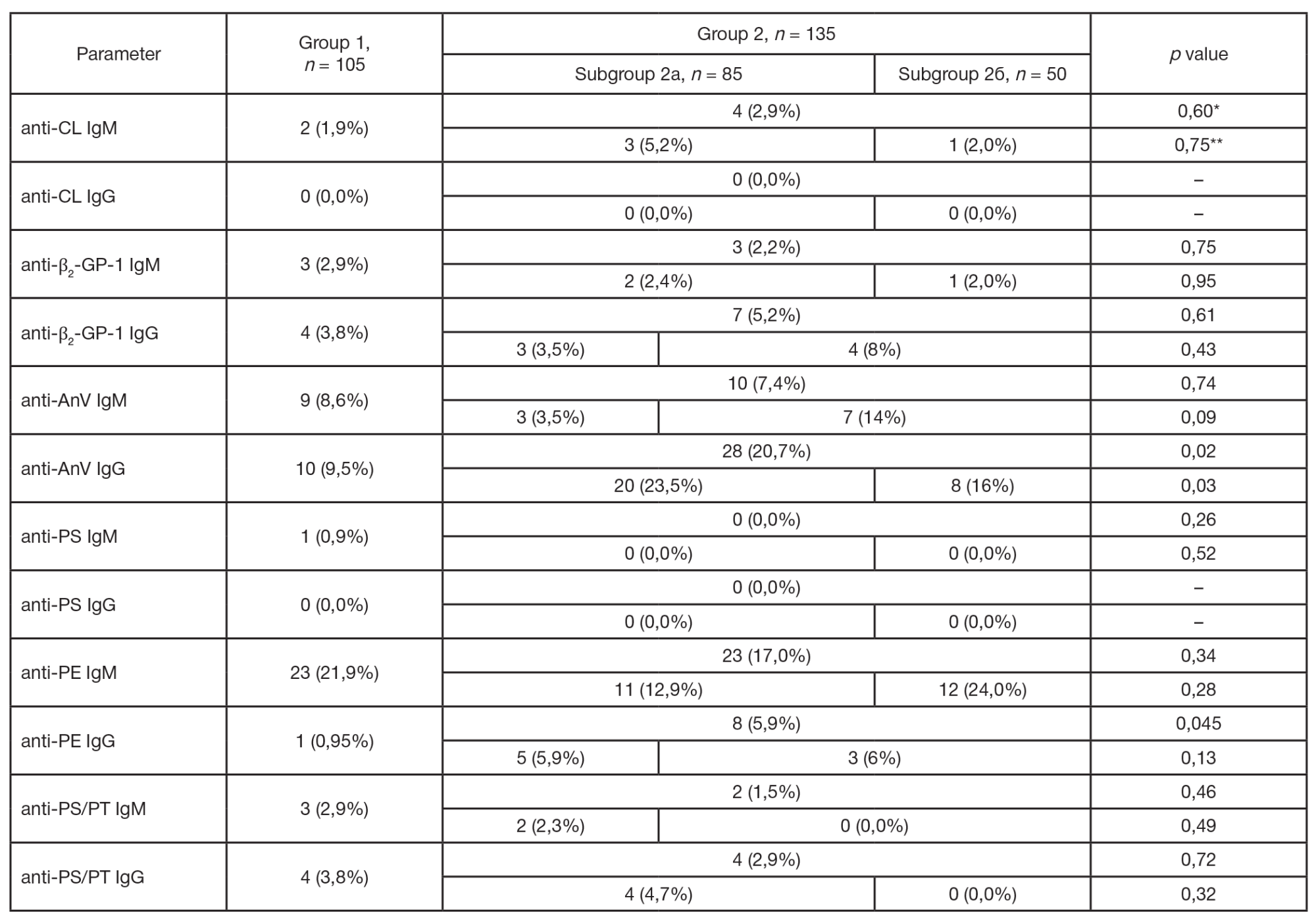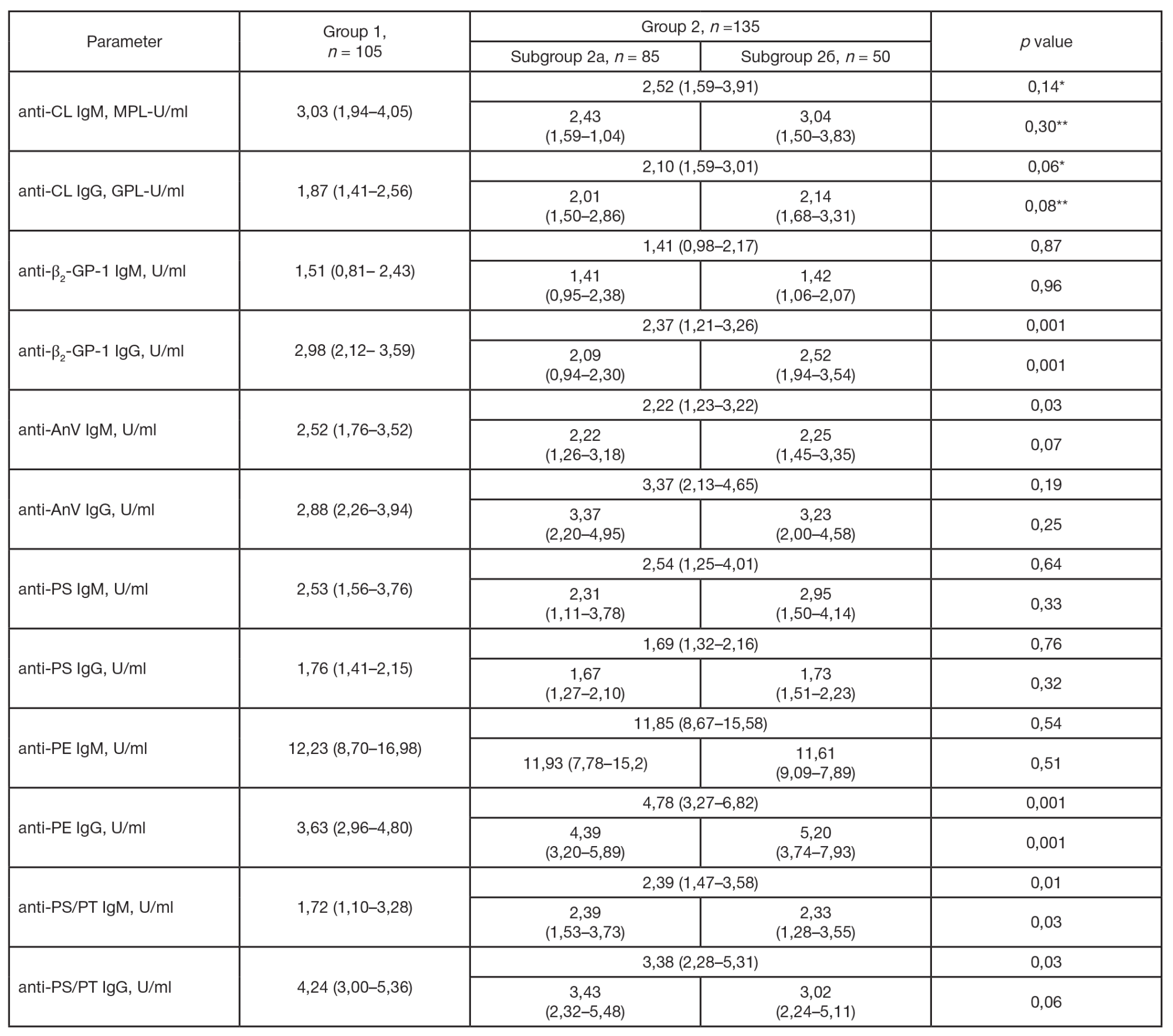
This article is an open access article distributed under the terms and conditions of the Creative Commons Attribution license (CC BY).
ORIGINAL RESEARCH
Antiphospholipid antibodies and outcomes of assisted reproductive technology programs in patients with a history of COVID-19
Kulakov National Medical Research Center for Obstetrics, Gynecology and Perinatology, Moscow, Russia
Correspondence should be addressed: Irina V. Menzhinskaya
Akademika Oparina, 4, Moscow, 117997, Russia; ur.4anirapo@ayaksniznem_i
Funding: the work was supported by the Vklad v buduscheye (Investment in the Future) charity foundation as part of the Stop Coronavirus Together program-campaign.
Author contribution: Ermakova DM, Lomova NA — management of patients participating in the study, article authoring; Dolgushina NV — collection and analysis of literature data, manuscript editing, statistical data analysis; Menzhinskaya IV — execution of the laboratory part of the study, article authoring and editing; Vtorushina VV — execution of the laboratory part of the study
Compliance with ethical standards: the study was approved by the Ethics Committee of Kulakov National Medical Research Center for Obstetrics, Gynecology and Perinatology (Minutes of meeting № 12 of November 26, 2020); all patients signed an informed voluntary consent to participation in the study.


